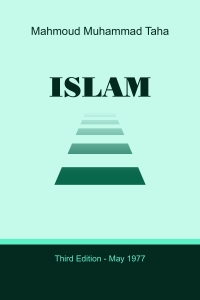Political and Social Equality
Political equality means that every citizen, male or female, above the age of twenty, for example, has the equal right to choose those who manage their local and central government and oversee their means of production.
Once economic equality and political equality are achieved, social equality naturally follows as a result of these foundations. There may remain minor issues that will depend on the public opinion of the society. However, the principles established by economic and political equality will eventually influence public opinion to evolve over time, whether slowly or quickly. This evolution will surely come.
It will be the duty of the state to guide and stimulate development through education and cultural enrichment so that public opinion may attain a level of freedom and tolerance that prevents it from rejecting diverse patterns of behavior - so long as these patterns aspire to refinement and excellence.
Worship in the Second Message is More Essential Than in the First
The state, by fostering vocational, technical, religious education, and public cultural awareness and freedoms, provides substantial assistance to individuals. However, there is a threshold where individuals must begin to exercise their own effort through self-discipline.
Islam provides the worship practices modeled by the Prophet, which form the most complete system of worship humanity has ever known. In the second message, these practices are even more essential than in the first message because contemporary human intellect is more oriented toward freedom than at any time in the past.
The path to true freedom lies solely in emulating the Prophet in his system of worship. The difference between the two approaches - worship in the first message and worship in the second - is that mature, rational individuals in the second message are not coerced or forced into worship. Instead, they are guided through example and persuasion: “There is no compulsion in religion. The right course has become clear from the wrong.” (2: 256)
The reason for this is that in the second message, everything - including society, Islam, and the Qur'an, and above all, acts of worship - serves as a means to produce the truly free individual, one who is free in the absolute sense.
If we were to coerce an individual into worship, forcing them through compulsion, we would undermine the very purpose of worship, by causing the means to defeat the ultimate goal. If this were to happen it would, naturally, become a retrogressive and flawed approach.

